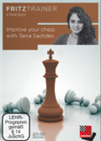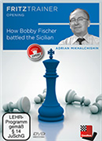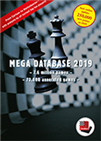The future of Asian chess gathers in Sri Lanka
On Tuesday, April 9th, the 2019 edition of the Asian Youth Chess Championships (AYCC) drew to a close. After more than a week of chess battles across all formats — Rapid, Blitz and Standard — in the idyllic seaside of Waskaduwa, Sri Lanka, the writing is on the wall that countries like Vietnam, India, Uzbekistan and Kazakhstan will continue to produce the next-generation of leading Asian chess players. It was a little surprising to see China winning merely two gold medals across all formats.
We managed to catch-up for a chat with IA Chan Kwai Keong (KK Chan), the Press Officer at the AYCC 2019 and President of the Hong Kong Chess Federation, who spoke candidly about who he thinks will dominate Asian chess in the years ahead, as well as discuss in detail the pioneering efforts of using CCTV technology akin to how VAR is used in football.
Edwin Lam (EL): KK, thank you so much for your time. What a busy past two weeks it must have been for you — together with AYCC 2019 Tournament Director, IA Wijesuriya G. Luxman, and the entire team at the Chess Federation of Sri Lanka — to host the 571 kids from across the continent in a chess event.
KK: Thank you, Edwin. Yes, a lot of work was accomplished in the past few months by the local team. They had started working immediately upon being awarded this event last year, with tons of preparation work in liaising with the 52 federations across Asia. The hotels offered were beautiful seaside resorts and I believe everyone was happy with the accommodations.

Tournament Director IA Luxman (centre), together with Hisham al-Taher, presenting the champion's trophy to WCM Nguyen Hong Anh, who won the Under-18 Girls event — she is flanked by the rest of the top 10 finishers in the competition
EL: After witnessing nine days of chess battles, who do you think will dominate Asian chess in the coming years?
KK: If we were to look solely at the statistics of who picked up the most medals at the AYCC, Vietnam, India, Uzbekistan and Kazakhstan seem to be the dominant force. Vietnam, for example, looked strong across all formats with its 35-player strong contingent winning gold twice in the Blitz, three times in the Rapid, and also three golds in the Standard competitions.

Vietnam's CM Nguyen Quoc Hy won a gold medal in the Rapid, flanked by fellow Vietnamese 2nd placed, CM Tran Dang Minh Quang, and 3rd placed Kuliyev Emin from Turkmenistan
Uzbekistan, who had only picked up one gold, one silver and one bronze in the earlier Rapid events, won three golds and one silver in the Standard events. Uzbekistan's strong showing at the AYCC is even more impressive if we take into account that they were only represented by a contingent of five players, and four of them happily went back home with either a gold or a silver medal. FM Abdisalimov Abdimalik won the Under-18 Open category with an undefeated score of 7.0/9.
India too performed very strongly and consistently across formats, with one gold, three silvers and five bronzes in the Blitz; two golds, five silvers and three bronzes in the Rapid; and two golds, four silvers and two bronzes in the Standard events.
 On this DVD, well-known Indian WGM Tania Sachdev shows you how to evaluate certain positions and then find the right concepts and plans on the basis of her own games.
On this DVD, well-known Indian WGM Tania Sachdev shows you how to evaluate certain positions and then find the right concepts and plans on the basis of her own games.
Indian players Moksh Amit Doshi and Sankalp Gupta (the two tallest guys at the back, on the winners’ podium), finishing one-two ahead of Iranian Pour Agha Bala Amirreza — India had 4 players in the top-10 spots of the Under-16 Open event
The Kazakh team, led by Under-16 FM Nogerbek Kazybek, was totally dominant in the Blitz, picking up four golds, one silver and one bronze. They also reigned supreme in the Rapid with four golds, one silver and one bronze. However, they were a little subdued in the Standard events, with only one gold, one silver and four bronzes to boot — a very strong showing nevertheless.

Kazakhstan's FM Nogerbek reigned supreme in the Rapid Under-16 Open event
EL: I guess the question on everyone's mind after looking at the results of the AYCC is, where does China stand?
KK: China picked up one gold in the Blitz and another gold in the Standard, both via their 1966-rated junior player, Zhang Di. Competing in the Under-12 category, Zhang Di overcame the higher-rated CM Shahil Dey in the Blitz event to win with a score of 6.0/7. He won the Standard event undefeated with 7½/9. En route, he held his higher-rated countryman, Chen Kailin, to a draw and then defeated the much-fancied CM Dev Shah of India in round eight. The Rapid event was the only one that escaped Zhang Di's clutch! It was won by CM Shahil Dey of India. If only Zhang Di had won the Rapid Under-12 title, this would have been a Grand Slam of sort, if I may call it such. He is definitely a player to watch in the coming years.

A small part of the Chinese delegation with their coach at the AYCC 2019
EL: While Zhang Di did punch above his weight, most of his teammates did not. What's your take on this?
KK: China only sent a delegation of twenty-three players for the AYCC 2019. Amongst them, some of their best — who recently won competitions inside China, a difficult feat indeed — were in the line-up. For many months, I liaised with the Chinese federation encouraging them to send more players. Despite my efforts, the twenty-three who came were the only ones allowed to participate at the AYCC 2019. Their biggest hope was this girl by the name of Chen Yining, but she disappointed. Perhaps in the future we will be able to host a larger contingent with many more top juniors.

CM Shahil Dey of India receiving his prize for winning the Rapid Under-12 event
EL: You mentioned CM Shahil Dey earlier. We heard from our Chessbase India friends that this boy from Assam is dubbed the Little Prince of Northeast India.
KK: I am actually quite impressed by CM Shahil. In the Rapid event, he ground down the higher-rated Chen Kailin of China and drew with another higher-rated Mongolian, CM Ochirbat Lkhagvajamts, en route to his victory on 6½/7 points. In the Standard event, he unfortunately only finished fifth despite being the third seed due to uncharacteristic losses against the lower-rated Mahendra Teja Mekala of India and AFM Sathmina S L Lalindu of Sri Lanka in rounds three and five.
EL: Chess has seen rapid growths in India in recent years. Online efforts such as the setting up of Chessbase India as well as the inception of Nurtr, together with offline efforts by super coach RB Ramesh and others in the local academies, are pushing the chess playing level of juniors in India higher and higher. We saw, for instance, the neck-to-neck battle between Sankalp Gupta and Moksh Amit Doshi in the Under-16 Open category (Standard).
KK: Oh yes! Sankalp was in fact leading the field after round eight, due to better tie-breaks. In terms of points, he was level with Moksh Amit. Round nine was a nail-biter. Sankalp had Black and despite best efforts he could not do much and the game ended drawn. Moksh Amit had White, but his opponent came out fighting and picked up two pawns by move seven. White regained one of the pawns on move nine and then sacrificed a rook for a knight on move eleven to calm things down, after which Moksh Amit gradually took control and won the game.
Annotations by Edwin Lam
These two games had decisive impact on the final results at the top of the standings in the Under-16 Open event.
Click or tap a game from the list to switch games
 Fischer liked to play aggressive but basically sound lines against the Sicilian and many of his variations are still very much alive and a good choice for players of all levels.
Fischer liked to play aggressive but basically sound lines against the Sicilian and many of his variations are still very much alive and a good choice for players of all levels.EL: Let us now shift gears to talk about a very interesting effort by the organizers of the AYCC 2019 — the use of CCTV footage covering all the games, in order to have video evidence in case of disputes. What's your take on this?
KK: I have been organizing and running chess events since the 1980s and I have seen a great deal of disputes between players. We, of course, are most familiar with the controversial knight-move made by Kasparov in his game against Judit Polgar in the 1994 Linares tournament. While video coverage of chess games was already available back then, especially for the top games, they were never officially used to settle disputes between players. At the AYCC 2019, we made a conscious choice to install CCTV cameras to cover every game played by all 571 players, and the footage was used to resolve any disputes or complaints that were raised during the rounds.

Mr Thiwanka, the Deputy Chief Arbiter (standing, centre), was directing efforts to find the truth behind complaints
EL: To cover all the games played by everyone is quite an achievement!
KK: We wanted a comprehensive coverage of all the games — and yes, covering the games of all 571 kids isn't a small number. The organizers spent around USD600 in total to set up the CCTV system and the monitor screens, to run and store the footage. Knowing the importance of video footage in junior chess events such as ours, we saw the necessity and importance of making such an investment in order to make it happen.
EL: I played in a FIDE-rated blitz event last year in Kuala Lumpur and witnessed an incident between a 61-year old FIDE-rated player against an unrated 12-year old boy. The man claimed that the boy had made a certain move, but the boy counter-claimed. An argument ensued. The assistant arbiters all came and each player gave his own version of the story. The 61-year old man played his cards well, reasoning and arguing with the assistant arbiters, and "won" his case. In the end, the game was resumed and the boy, in protest, cried and cried and cried and never made another move. He soon lost on time. If only we had video footage to help review matters, then this case would have been much more fairly resolved.
KK: Absolutely! In the recently concluded AYCC 2019, we had an incident involving two players in the Under-8 Open category. A boy said he had moved his rook from b2 to b8 and then pressed the clock. His opponent clearly objected, but the boy insisted on the truth of his move. We reviewed the video evidence and found out that the rook move did not happen as claimed. Only then did the boy admit to his mischief. While both players had insisted on the correctness of each person's version of the story, the video evidence helped us clarify matters. Another incident involved a player that had left his seat and gone to the toilet. When he came back, he witnessed his opponent discussing the ongoing game with his friend. We looked at the video evidence and took the necessary action.
 The "Mega" is the database every serious chessplayer needs. The database contains 7.6 million games from 1500 to 2018, in highest quality standard, full of top level analyses and completely classified.
The "Mega" is the database every serious chessplayer needs. The database contains 7.6 million games from 1500 to 2018, in highest quality standard, full of top level analyses and completely classified.
Parents could also see the footage online, throughout the tournament duration
EL: This is a great effort. It very much mirrored the implementation of the VAR (Video-Assistant Referee) in football. I believe this should be made the standard requirement for more and more chess tournaments going forward.
KK: Having witnessed the purposeful use of CCTV footage at the AYCC 2019, I will propose introducing a similar initiative in the upcoming World Cadet Chess Championship in Weifang (Shandong province), China later this year.
EL: Thank you KK for your time. And I wish you a great success in running the World Cadet Championship in Shandong, China!
KK: Welcome and thank you.

KK Chan at the prize giving ceremony
Correction May 5: The name of IA Chan Kwai Keong (who goes by 'KK Chan') was initially misspelled.
Links
























